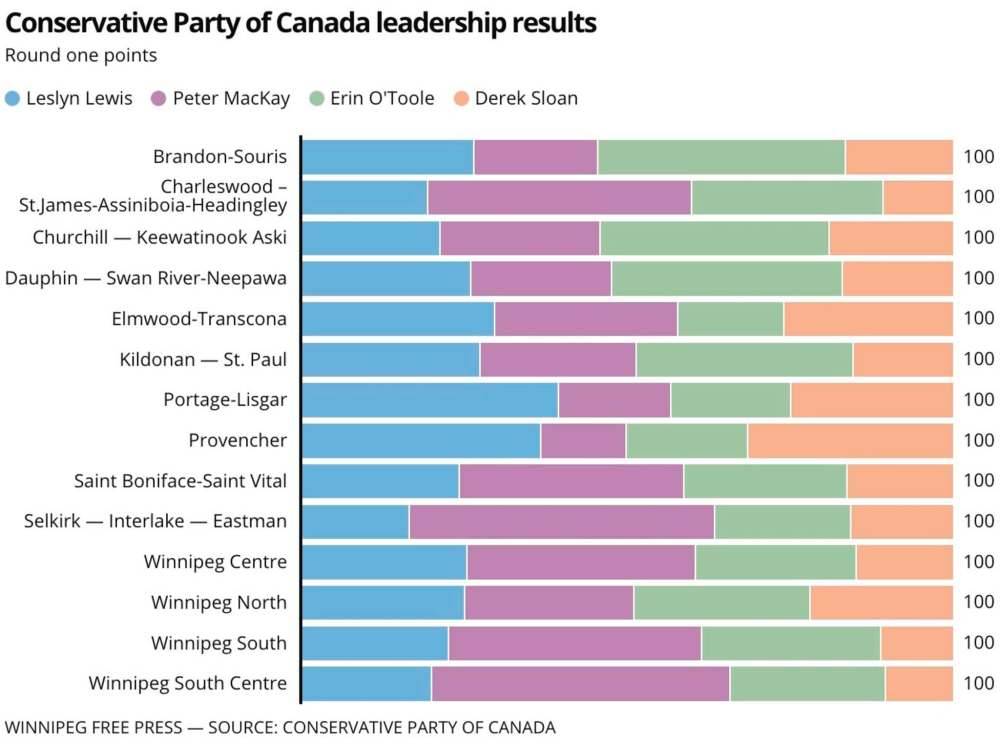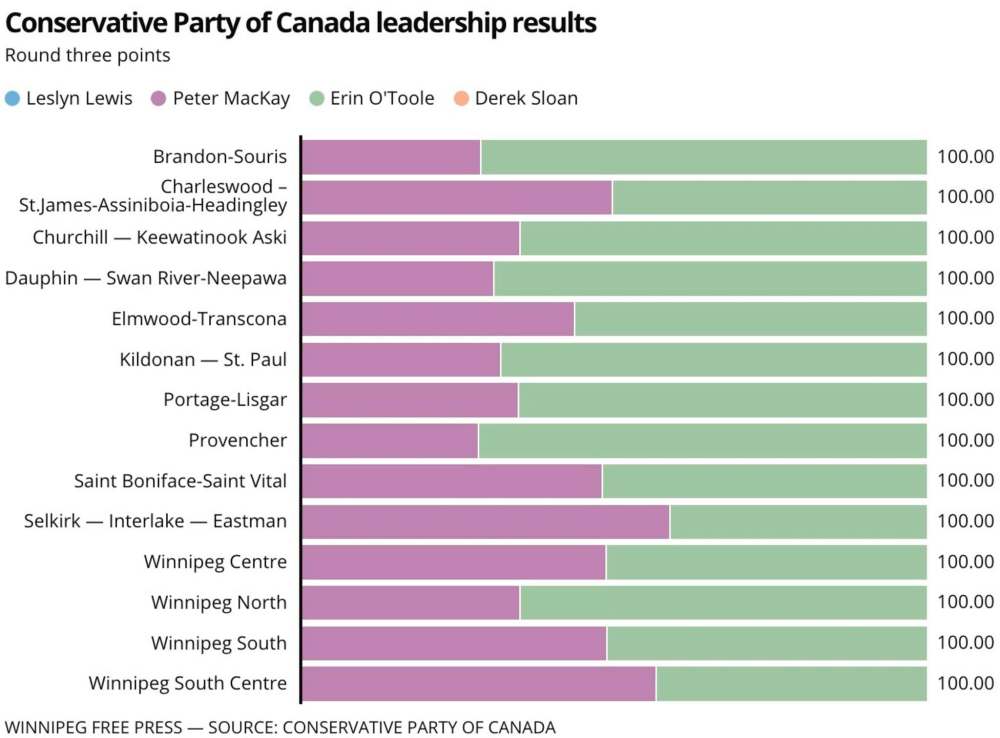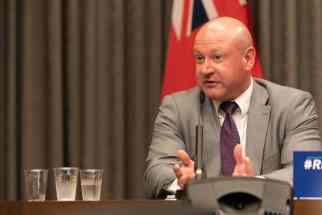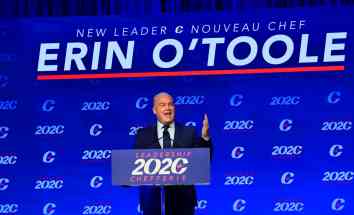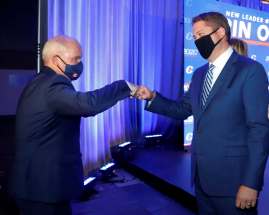Too ‘true ‘blue? New Tory leader's platform didn't appeal to significant percentage of Winnipeg party members on early round ballots
Read this article for free:
or
Already have an account? Log in here »
To continue reading, please subscribe:
Monthly Digital Subscription
$0 for the first 4 weeks*
- Enjoy unlimited reading on winnipegfreepress.com
- Read the E-Edition, our digital replica newspaper
- Access News Break, our award-winning app
- Play interactive puzzles
*No charge for 4 weeks then price increases to the regular rate of $19.00 plus GST every four weeks. Offer available to new and qualified returning subscribers only. Cancel any time.
Monthly Digital Subscription
$4.75/week*
- Enjoy unlimited reading on winnipegfreepress.com
- Read the E-Edition, our digital replica newspaper
- Access News Break, our award-winning app
- Play interactive puzzles
*Billed as $19 plus GST every four weeks. Cancel any time.
To continue reading, please subscribe:
Add Free Press access to your Brandon Sun subscription for only an additional
$1 for the first 4 weeks*
*Your next subscription payment will increase by $1.00 and you will be charged $16.99 plus GST for four weeks. After four weeks, your payment will increase to $23.99 plus GST every four weeks.
Read unlimited articles for free today:
or
Already have an account? Log in here »
Hey there, time traveller!
This article was published 24/08/2020 (1933 days ago), so information in it may no longer be current.
OTTAWA — New federal Conservative Leader Erin O’Toole attracted lukewarm support among Winnipeg party members, suggesting he’ll have to soften his right-leaning platform to gain urban support.
All but two of Manitoba’s 14 ridings ultimately supported O’Toole in the final round, but the new Tory leader was the first choice of nearly 25 per cent fewer Winnipeggers than Peter MacKay.
“I think O’Toole’s strategy is now to move to the centre, now that he’s captured the centre-right of the party,” said longtime University of Manitoba political scientist Christopher Adams.
“The party does have to appeal more strongly to suburban and urban voters.”
The Tories elected their leader in the wee hours Monday morning using a ranked-ballot system that weighs ridings equally. That system favours candidates with widespread popularity, even if they’re often a second choice for voters.
The ranked ballot led to three rounds of elimination, at which point O’Toole triumphed. He was buoyed by ridings in Quebec and second-place support in areas with large pockets of social conservatives.
But looking at his first-round support in Manitoba shows how much support O’Toole might garner in a national election.
He ran on a “true blue” platform that includes curtailing CBC funding, ending the carbon tax and giving provinces control over immigration numbers. His pledge to “take back Canada” echoes the British government’s Brexit slogan.
Those policy planks would be a hard sell in the urban ridings the Tories failed to take from the Liberals last fall, said Adams, who is rector of St. Paul’s College.
“Urban voters in Winnipeg are quite different to voters in Calgary on issues like climate change,” He said.
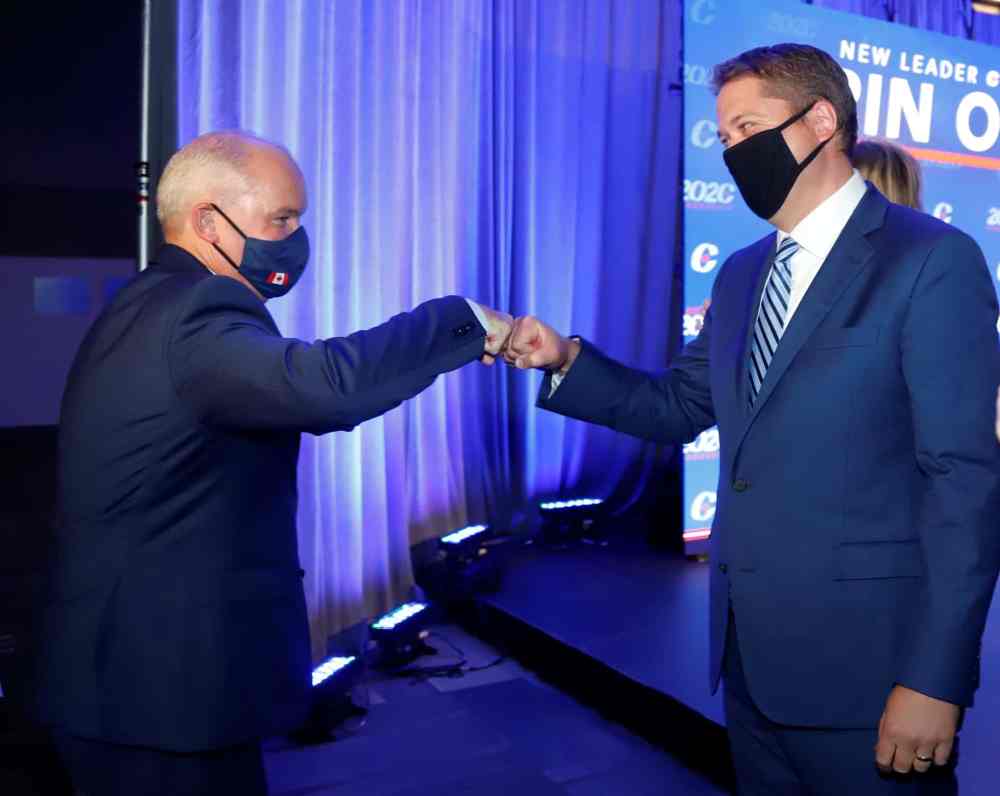
He noted that Andrew Scheer resigned the party leadership after failing to attract urban support, having instead increased the vote share in ridings that already tend to vote for Tories.
Adams noted that MacKay’s first-round support in Manitoba was strongest in wealthier areas, suggesting he was the candidate of business people in neighbourhoods such as Tuxedo.
O’Toole, meanwhile, had a strong showing in Westman, the province’s North and in Kildonan-St. Paul.
In ridings that include Winnipeg city limits, MacKay got 1,071 votes in the first round, compared with 835 for O’Toole. The results in most ridings aligned with local MP endorsements.
Leslyn Lewis, a social conservative who was widely unknown just months ago, swept the ridings of Portage-Lisgar and Provencher.
Most of her voters did not carry through to the third round of voting. That suggests a push by evangelical voters who chose not to support either O’Toole or MacKay as second-choice candidates, Adams said.
Lewis also took the city riding of Elmwood-Transcona, in which O’Toole placed fourth, ranking last and behind far-right candidate Derek Sloan. She also ranked second in areas that included Kildonan, Brandon and Dauphin.
In the final ballot round against MacKay, O’Toole took support in every Manitoba riding except for Winnipeg South Centre and Selkirk-Interlake-Eastman.
In Monday’s tabulation, Winnipeg ridings weighed just as much in the race as rural ones, despite some city ridings having one-fifth as many Conservatives casting a ballot as rural ones.
In the party’s last leadership race in 2017, Maxime Bernier took six of Winnipeg’s eight ridings, with Scheer gaining only the northeast in the 13th round, but ultimately winning the party’s crown.
Adams said women remain a key demographic for conservative parties, both federally and provincially, as they regularly vote but tend to favour left-leaning parties.
“O’Toole’s challenge winning urban voters in Winnipeg will be to get those swing women voters who voted for (former Tory leader Stephen) Harper, in part because he had some strong women candidates in the local area.”
dylan.robertson@freepress.mb.ca
Conservative leadership-race results for Manitoba ridings

